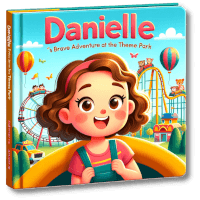Reading with children
a blog by Magic Tales

Unraveling the Psychology of Learning Numbers through Children's Literature
In the world of early childhood development, literature plays a significant role in shaping young minds. Today, let’s delve into the significance and psychology of learning numbers in children’s literature. This intertwining of cognition, behaviour and numerical literacy is pivotal in a child's overall development and has profound implications in their understanding and application of mathematics.
The Primary Years: Setting the Stage
From an early age, children are fascinated by numbers. They love to count their toys or the stairs as they climb up. Authors and illustrators of children's literature tap into this natural interest, providing a practical, engaging approach to mathematics. Counting books, books with number concepts, and those incorporating patterns provide an excellent foundation for numerical literacy. While having fun, children strengthen their number sense, the intuitive understanding of numbers, their relationships, and the mathematical operations affecting them.
Numbers in Nursery Rhymes and Songs
The psychology of learning is oriented around the concept of association and repetition, both of which are abundant in nursery rhymes and songs. For instance, 'One, Two, Buckle My Shoe' or 'Five Little Monkeys' use numbers and rhythmic patterns, making it easier for children to pick up numerical concepts. They remember the numbers through a catchy tune and playful story, imprinting this mathematical knowledge in their minds.
The Role of Visual Representation
The visual representation of numbers in children's literature is a powerful tool for cognitive development. Books that depict numbers through characters (e.g., 'The Very Hungry Caterpillar'), arrays (e.g., 'Ten Black Dots') or just visually representing quantities (e.g., 'How Many Bugs in a Box?') are excellent ways of bringing numbers to life. As children associate numbers with these images, their numerical comprehension and memory are strengthened.
Numeracy and Problem Solving
It's not just about learning numbers - it’s about understanding their application too. Books that encourage problem solving, like 'Math Curse' or 'Anno's Mysterious Multiplying Jar', not only teach mathematical principles but also instill a sense of curiosity and logic. This develops critical thinking skills, empowers children to find solutions, and cultivates a love for mathematics beyond just rote learning. This integration of literature with problem-solving can create a long-term affinity for learning and understanding math with a practical perspective.
Conclusion
Encouraging numerical literacy at a young age through children's literature creates a solid foundation for future learning adventures. This comprehensive approach allows children to seamlessly transition from counting, to number recognition, to more complex mathematical concepts. So, the next time your little one picks up a counting book or a book that features numerical characters, remember that they are building skills that will prove invaluable in their academic journey. After all, every story, even the ones involving digits, can leave a lasting imprint on our minds.
Want a personalized book to read with your child about Learning numbers?
Takes as quickly as 30 seconds to create
Create a book about Learning numbers

